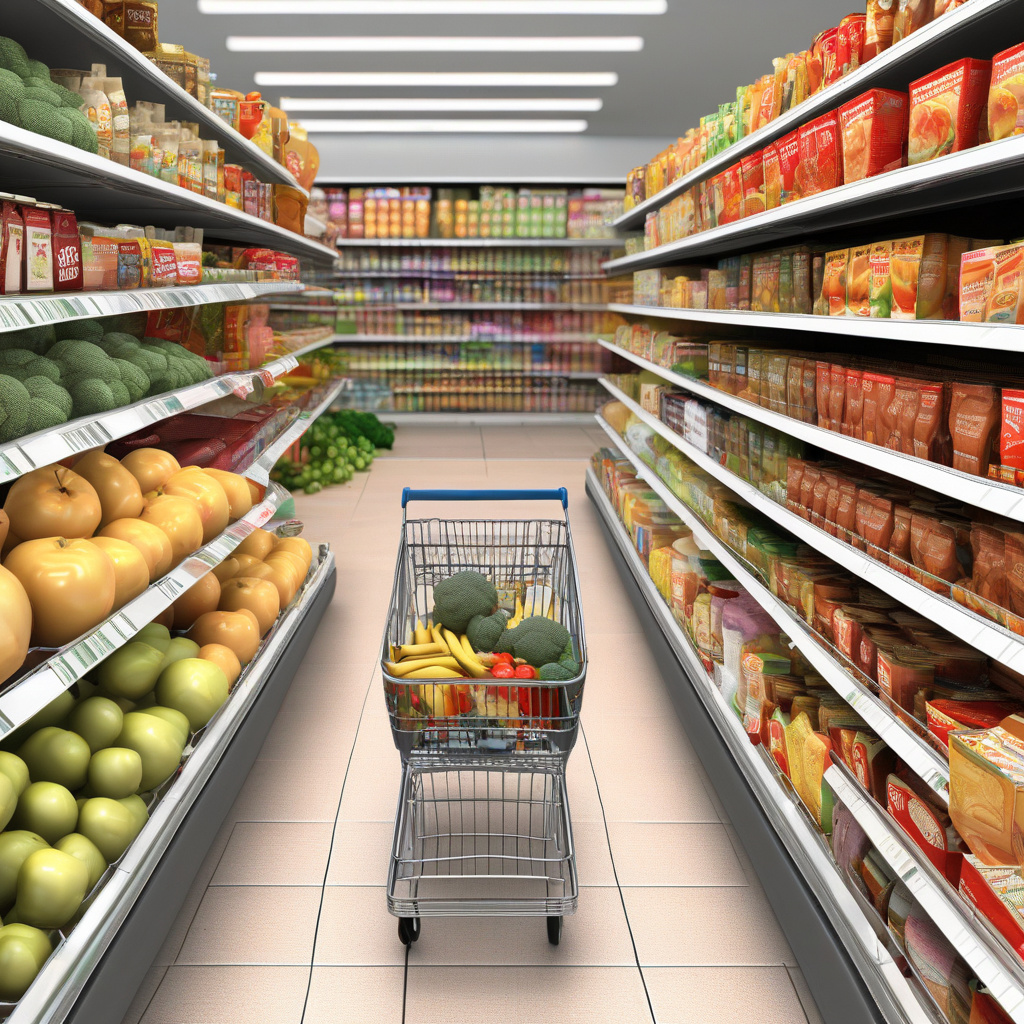Data: Grocery Bills Could Jump £275 a Year as Inflation Bites
In recent months, UK households have faced a stark reality: the cost of groceries is surging at an alarming rate. With grocery inflation hitting its highest level since January 2024, it is projected that annual grocery bills could increase by as much as £275. This surge in prices calls for a closer examination of the factors driving this inflation and its potential impact on consumers.
The latest figures reveal that grocery inflation in the UK has reached levels that many families have not experienced in years. According to industry analysts, this inflationary trend is largely driven by a combination of rising production costs, supply chain disruptions, and increased demand for certain products. As a result, consumers are feeling the pinch at the checkout, and the repercussions are being felt across the economy.
To put this into perspective, a £275 increase in annual grocery bills equates to an additional £5.29 per week for the average household. For many families, this added expense can significantly alter their budgeting and spending habits. A recent survey indicated that a substantial number of consumers are already adjusting their shopping lists, opting for cheaper brands, or even reducing their overall grocery purchases to manage their finances effectively.
One of the primary contributors to this inflation is the rising cost of raw materials. Prices for staples like wheat, dairy, and meat have surged, largely due to global supply chain challenges exacerbated by ongoing geopolitical tensions and climate-related issues. For instance, the war in Ukraine has disrupted grain supplies, while adverse weather conditions have impacted livestock production. These factors have trickled down to consumers, who are now confronted with higher prices for everyday items.
Furthermore, retailers are grappling with increased operational costs. Energy prices have skyrocketed, and this has led to higher expenses for transportation and storage. Many grocery chains have had to pass these costs onto consumers to maintain their profit margins. Retailers are caught in a difficult position; they must balance the need to remain competitive while also providing quality products at reasonable prices.
In response to the inflationary pressures, some major retailers have adopted various strategies to alleviate the burden on their customers. For example, several supermarket chains have introduced loyalty programs, discounts, and promotional offers to entice shoppers and encourage spending. These initiatives are aimed at retaining customer loyalty in a competitive market where consumers are increasingly price-sensitive.
However, while these measures can provide temporary relief, they may not be enough to counteract the broader economic forces at play. The Bank of England has warned that inflation could persist for some time, and consumers may need to prepare for a prolonged period of rising prices. This situation raises concerns about the potential long-term implications for the UK economy, as households are forced to allocate a larger portion of their budgets to essential items like groceries.
Moreover, the impact of rising grocery bills extends beyond individual households. As consumers adjust their spending habits, there is a cascading effect on other sectors of the economy. Retailers may see decreased sales in non-food items as families prioritize essentials, leading to a slowdown in overall economic growth. This ripple effect can create a challenging environment for businesses that rely on consumer spending to thrive.
To mitigate the effects of grocery inflation, experts recommend that consumers adopt a strategic approach to their shopping. This includes meal planning, making use of seasonal produce, and buying in bulk when possible. Additionally, exploring local markets and independent retailers can provide access to fresher products at competitive prices. By being proactive in their shopping habits, consumers can better navigate the challenges posed by rising grocery costs.
In conclusion, the projected increase of £275 in annual grocery bills due to soaring grocery inflation highlights the pressing economic challenges facing UK households. With rising production costs, supply chain disruptions, and changing consumer behaviors, the landscape of grocery shopping is undergoing a significant transformation. As families adapt to these changes, it is essential for retailers and policymakers to work collaboratively to address the root causes of inflation and support consumers in their quest for affordable necessities.
Ultimately, understanding the dynamics of grocery inflation is crucial for both consumers and businesses alike. By staying informed and making strategic choices, households can better manage their finances in an increasingly challenging economic environment.
groceryinflation, UKhouseholds, risingcosts, consumerbehavior, economicimpact
